 W
WSimon Baruch was a physician, scholar, and the foremost advocate of the urban public bathhouse to benefit public health in the United States.
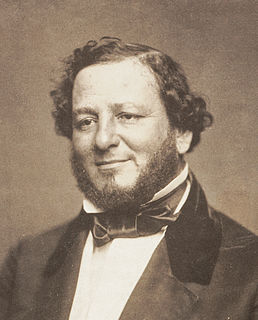 W
WJudah Philip Benjamin, QC was a lawyer and politician who was a United States Senator from Louisiana, a Cabinet officer of the Confederate States and, after his escape to the United Kingdom at the end of the American Civil War, an English barrister. Benjamin was the first Jew to hold a Cabinet position in North America and the first to be elected to the United States Senate who had not renounced his faith.
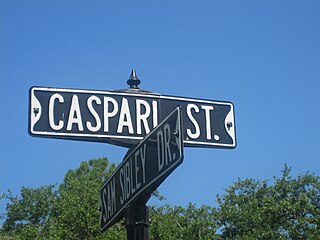 W
WLeopold Caspari was a Louisiana businessman and politician who served in the Louisiana House of Representatives from 1884 to 1892, where he advocated the establishment of Northwestern State University.
 W
WThe Cemetery for Hebrew Confederate Soldiers is a Jewish cemetery in Richmond, Virginia. Along with a cemetery for Jewish veterans of World War I located in Weissensee, Berlin, it is the only Jewish military cemetery not located in Israel. The cemetery is within the Hebrew Cemetery of Richmond, on historic Shockoe Hill, and is maintained by Congregation Beth Ahabah.
 W
WDavid Camden de Leon, known as "the fighting doctor", was born in Camden, South Carolina, of Sephardic Jewish parents, Mordecai Hendricks de Leon, a physician and three-term mayor of Columbia, South Carolina, and Rebecca Lopez de Leon. Edwin de Leon and Thomas Cooper de Leon were his brothers. He received the M.D. degree from the University of Pennsylvania in Philadelphia in 1836. He entered the Army in 1838 as Assistant Surgeon and "served with distinction in the Seminole war". At the beginning of the Mexican War, he went with General Zachary Taylor to the Rio Grande, was present at most of the battles in the campaign toward Mexico, and entered that city when it surrendered. At the battle of Chapultepec he earned the sobriquet of "the Fighting Doctor," as on two occasions led a charge of cavalry after the officer commanding had been killed or wounded. For his distinguished services and for his gallantry in action he twice received the thanks of Congress. He was then assigned to frontier duty, and in 1856 he became surgeon, with the rank of major.
 W
WEdwin de Leon was a Confederate diplomat, writer, and journalist.
 W
WMoses Jacob Ezekiel, also known as Moses "Ritter von" Ezekiel, was an American sculptor who lived and worked in Rome for the majority of his career. Ezekiel was "the first American-born Jewish artist to receive international acclaim."
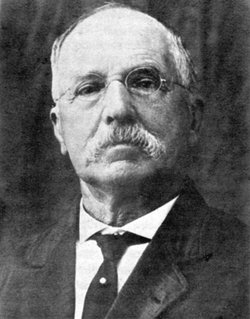 W
WMax Frauenthal was a leading merchant in post-bellum Arkansas, and was a founding father of Conway, Arkansas; Heber Springs, Arkansas; and Cleburne County, Arkansas. He is known for the courage he showed during the Battle of Spotsylvania Court House in the American Civil War.
 W
WEmil Ganz was a businessman and two-time mayor of Phoenix, Arizona.
 W
WThe Hebrew Cemetery in Richmond, Virginia, also known as Hebrew Burying Ground, dates from 1816. This Jewish cemetery, one of the oldest in the United States, was founded in 1816 as successor to the Franklin Street Burial Grounds of 1789. Among those interred here is Josephine Cohen Joel, who was well known in the early 20th century as the founder of Richmond Art Co. Within Hebrew Cemetery is a plot known as the Soldier's Section. It contains the graves of 30 Jewish Confederate soldiers who died in or near Richmond. It is one of only two Jewish military cemeteries outside of the State of Israel.
 W
WThe Jewish Confederates is a 2001 history book authored by Robert N. Rosen about Jewish citizens of the Confederate States of America who served in the Confederate States Army (CSA) during the American Civil War of 1861–1865. As they made up just 0.2% of the CSA, their story had not been heavily researched before Rosen, a Jewish lawyer in Charleston, South Carolina with a master's degree in History from Harvard University, authored the book. It received both praise and criticism in many academic journals. Rosen has written two more books about the city of Charleston.
 W
WBenjamin Franklin Jonas was a Democratic U.S. Senator from Louisiana and an officer in the Confederate States Army during the American Civil War. He was the third Jew to serve in the Senate.
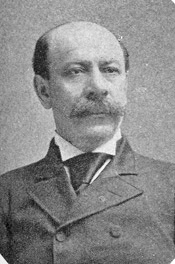 W
WAdolph Meyer was a member of the U. S. House of Representatives representing the state of Louisiana. He served nine terms as a Democrat from 1891 until his death in office in 1908.
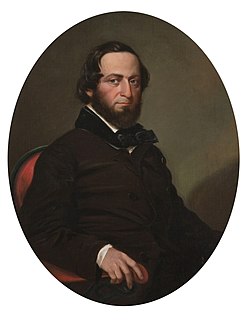 W
WEdwin Warren Moïse (1810–1868) was an American medical doctor and Judge in the Confederate States of America.
 W
WPhoebe Yates Levy Pember was a member of a prominent American Jewish family from Charleston, South Carolina and a nurse and female administrator of Chimborazo Hospital at Richmond, Virginia during the American Civil War. She assumed the responsibility informally at the age of 39 and eventually over 15,000 patients came under her direct care during the war.
 W
WPhilip Phillips was an American lawyer and politician from Cheraw, South Carolina, Mobile, Alabama, and Washington, D.C. He was a member of the Democratic Party who served as the U.S. Representative from Alabama. Subsequently, he was a prominent lawyer in Washington, D.C., much involved in the political events surrounding the American Civil War.
 W
WAdolph Proskauer was a Jewish officer in the army of the Confederate States of America during the United States Civil War. He rose to the rank of major. Major Adolph Proskauer of Mobile, Alabama was wounded several times. A subordinate officer wrote "I can see him now as he nobly carried himself at Gettysburg, standing coolly and calmly with a cigar in his mouth at the head of the 12th Alabama amid a perfect rain of bullets, shot and shell. He was the personification of intrepid gallantry and imperturbable courage.
 W
WDavid Levy Yulee was an American politician and attorney. Born in St. Thomas, then under British control, he was of Sephardi Jewish ancestry: his father was from Morocco and his mother from Europe. The family moved to Florida when he was a child, and he grew up there on their extensive lands. He later served as Florida's territorial delegate to Congress. Yulee was the first person of Jewish ancestry to be elected and serve as a United States Senator, serving 1845–1851 and again 1855–1861. He founded the Florida Railroad Company and served as president of several other companies, earning the nickname of "Father of Florida Railroads." In 2000 he was recognized as a "Great Floridian" by the state.